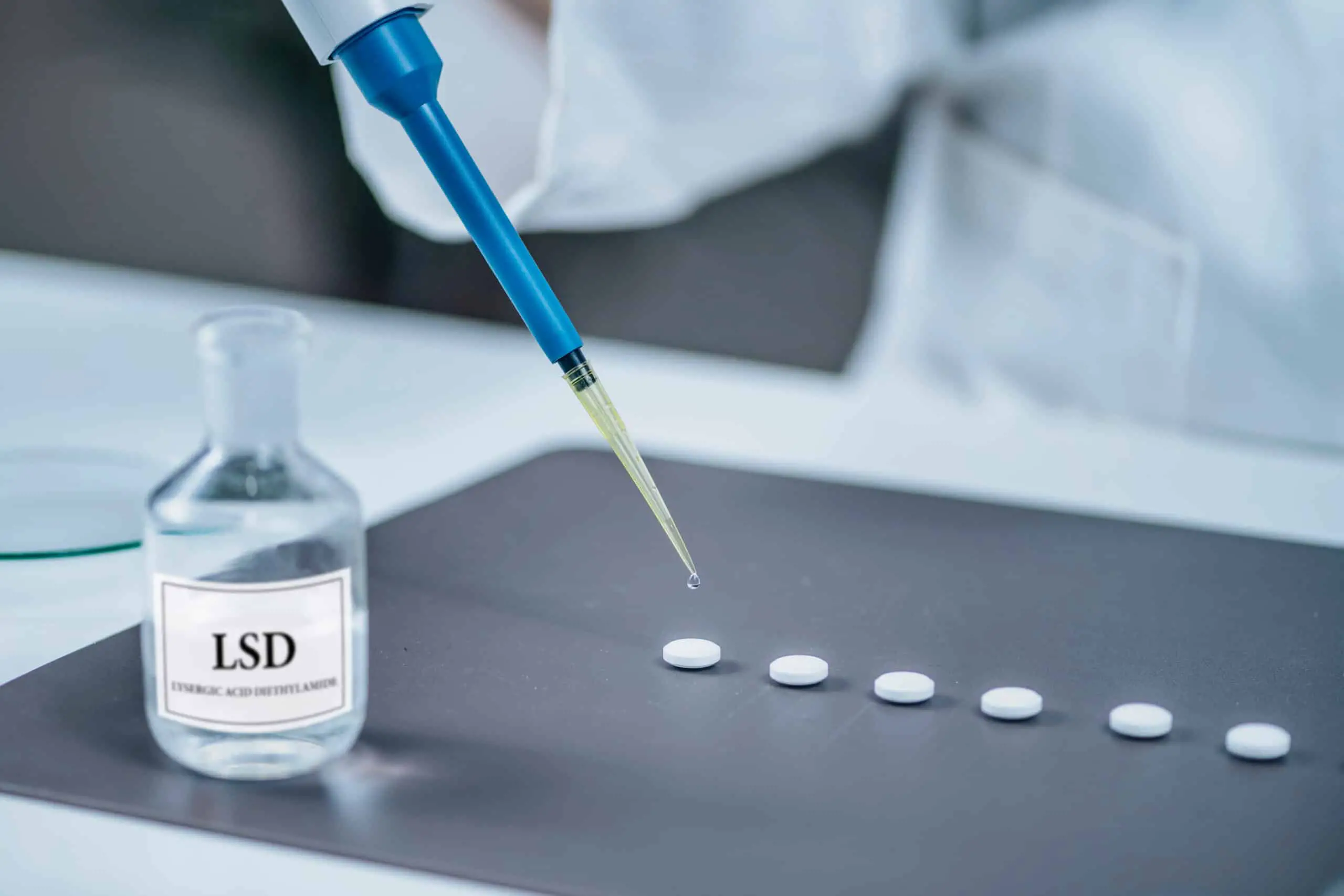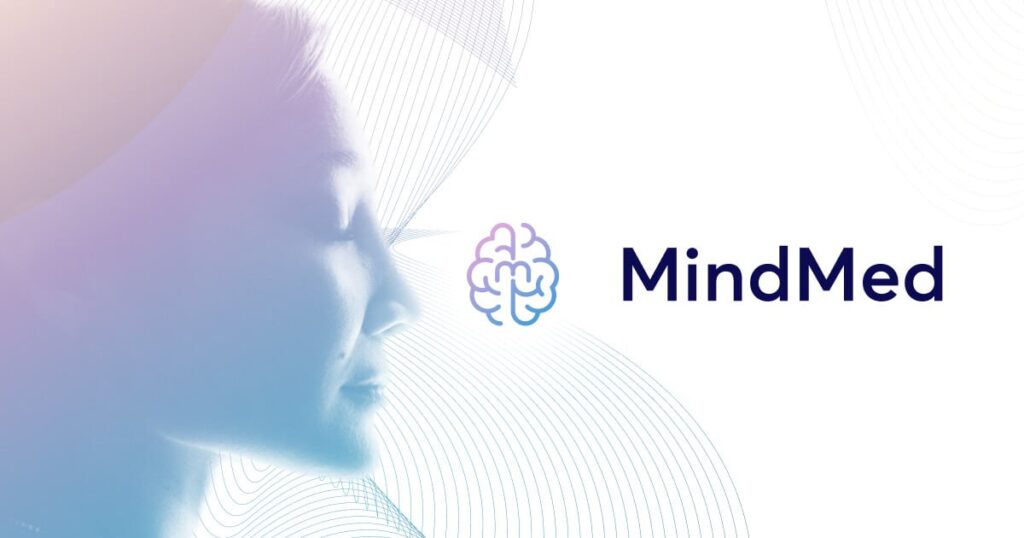Psychedelics
Press Release: Wesana Health Announces Sale of SANA-13 Assets to Lucy Scientific Discovery
Published
1 year agoon
By
admin
CHICAGO and TORONTO, March 21, 2023 (GLOBE NEWSWIRE) — Wesana Health Holdings Inc. (“Wesana” or the “Company”) (CSE: WESA; OTCQB: WSNAF), a data-driven life sciences company, today announced that the Company has entered into a definitive asset purchase agreement dated March 20 2023 (the “Asset Purchase Agreement”) with Lucy Scientific Discovery Inc. (“Lucy”) (NASDAQ:LSDI) for the sale by Wesana Health Inc. (“WHI”), a subsidiary of the Company, of its SANA-013 intellectual property and related assets for consideration of 1,000,000 common shares of Lucy (the “Share Consideration”) and US$570,000 in cash (the “Cash Consideration”).
Transaction Highlights:
- The Transaction (as defined below) provides an opportunity for the continued development of SANA-013 through the next phases of the US FDA regulatory process and for the Company to have economic exposure to any positive advancements in any such future research and development efforts by Lucy.
- The Company will also have economic exposure to the broader Lucy asset portfolio and pipeline, including a Canadian Licensed Dealer conducting research on various compounds.
- The Transaction is expected to close in Q2 2023, subject to and following the satisfaction (or waiver as permitted) of the conditions precedent to the Transaction.
“We have worked diligently over the previous two years to develop novel therapies for the treatment of major depressive disorder and have made some significant advances in our drug development program. Broader challenges in the macro-environment led us to consider strategic options, and we believe there is significant value held in continuing development of SANA-013,” commented Daniel Carcillo, Chief Executive Officer and Chairman of the Board.
Chris McElvany, Chief Executive Officer of Lucy, said, “expanding our footprint with the SANA-013 drug development program is a logical next step for Lucy, which should also drive growth in Lucy’s manufacturing business.”
Transaction Details:
Pursuant to the Asset Purchase Agreement, Lucy, an arms-length party to the Company, has agreed to acquire WHI’s SANA-013 intellectual property and related assets for aggregate consideration comprised of the Share Consideration and the Cash Consideration, as outlined in the Asset Purchase Agreement (the “Transaction”). US$300,000 of the Cash Consideration is anticipated to be paid to WHI shortly and the remainder of the Cash Consideration is required to be paid to WHI at closing. The proceeds from the Transaction are to be used by WHI for reasonable general corporate purposes which WHI deems necessary in its sole discretion to the development of SANA-013 and/or completion of the transaction contemplated by the Asset Purchase Agreement.
The Share Consideration shall be subject to a lock-up agreement (the “Lock-Up Agreement”) whereby (i) one-half of the Share Consideration will be released 9 months from initial trading date of LSDI shares, and (ii) one-half of the Share Consideration will be released 14 months from the initial trading date of LSDI shares.
The Share Consideration will be issued as “restricted securities” under the United States Securities Act of 1933, as amended, and may be publicly resold, subject to terms of the Lock-Up Agreement, in compliance with Rule 144 (“Rule 144”) thereunder. Lucy has granted the Company (i) demand registration rights in the event that Rule 144 is not available for the public resale of the Share Consideration, and (ii) piggy-back registration rights.
The Asset Purchase Agreement also contains customary non-solicitation covenants on the part of Wesana with respect to alternative transactions.
Among other conditions precedent, the consummation of the Transaction is subject to the approval of at least 66⅔% of the votes cast by Wesana shareholders voting in person or represented by proxy at a meeting of Wesana shareholders to be called by Wesana for purposes of considering the Transaction.
Certain shareholders of Wesana, representing all of the outstanding Wesana super voting shares, 23.1% of the outstanding Wesana proportionate subordinate voting shares and 14.7% of the outstanding Wesana subordinate voting shares, have entered into support agreements with Wesana, agreeing to support the Transaction and vote their Wesana shares in favour of the Transaction at the shareholders meeting to be called by Wesana for purposes of considering the Transaction.
Further details regarding the terms of the Asset Purchase Agreement and the Transaction are set out in the Asset Purchase Agreement, which will be filed by the Company under its profile on SEDAR at www.sedar.com. Additionally, further information regarding the Transaction, including the background thereto and the rationale for the recommendations made by the Special Committee and the Board, will be contained in the management information circular (the “Circular”) that the Company will prepare, file and mail to Wesana shareholders in connection with the meeting of Wesana shareholders to be called by Wesana for purposes of considering the Transaction and will file under the Company’s profile on SEDAR at www.sedar.com. All Wesana shareholders are urged to read the Circular as it will contain important information.
The Transaction is expected to close in the second quarter of 2023, subject to and following the satisfaction (or waiver as permitted) of the conditions precedent to the Transaction.
The Transaction will enable Lucy to provide continued capital investment to further the SANA-013 research and development required to meet the standards set by the United States Food and Drug Administration (“FDA”) to provide treatment against Major Depressive Disorder and other complementary orphan indications. The Share Consideration will enable the Company (through WHI) to have economic exposure to the future growth potential associated with SANA-013 and other initiatives underway or contemplated by Lucy.
Transition of Key Employees:
Subject to agreement on terms, it is anticipated that Wesana’s CEO and Chairman Daniel Carcillo will join Lucy’s team to integrate SANA-013 within Lucy.
Wesana also announces that as part of a planned transition, Mr. Zed Wang has resigned as the Company’s Chief Financial Officer and Corporate Secretary, and Mr. Winfield Ding has been appointed as the Company’s Chief Financial Officer and Corporate Secretary, effective immediately. Mr. Wang will be remain available to ensure a smooth transition.
Mr. Ding has been CFO and director for a number of public companies in Canada. He is a seasoned senior finance executive with over twenty years of finance and operations experience. A former audit manager and currently a self-practitioner, he has worked in audit, taxation and advisory roles across a wide range of industries with a focus on public issuers financial reporting and business advisory. Mr. Ding received his MBA from the Chinese University of Hong Kong.
“Winfield brings seasoned expertise in capital markets, strategic transactions, and public company compliance,” said Daniel Carcillo. He continued, “Zed’s departure comes with a successful transition of finance oversight to Winfield. We are extremely fortunate to have had Zed as part of the Wesana team from the beginning, and we wish him all the best as he goes on to pursue his other passions.”
Wesana Board Approval:
The Company’s board of directors (the “Board”), after receiving a recommendation from a special committee of the Board (the “Special Committee”), has determined (with Daniel Carcillo declaring an interest and abstaining) that the Transaction is in the best interests of the Company and that the consideration to be received by the Company pursuant to the Transaction is fair to the Company. Accordingly, the Board has approved the Asset Purchase Agreement and recommends that Wesana shareholders vote in favour of the Transaction.
Eight Capital has provided a fairness opinion to the Special Committee that, as of the date of such opinion and subject to the assumptions, limitations and qualifications on which such opinion is based, the consideration to be received by the Company pursuant to the Transaction is fair from a financial point of view to the Company.
Advisors:
Eight Capital is acting as financial advisor, and Nauth LPC and McCarthy Tétrault LLP are acting as legal counsel to Wesana. Dentons Canada LLP is acting as legal counsel to Wesana’s Special Committee.
Troutman Pepper and TingleMerrett LLP are acting as legal counsel to Lucy.
ON BEHALF OF THE BOARD
Daniel Carcillo, Chairman and Chief Executive Officer
Phone: 702-329-8038
About Wesana Health
Wesana Health is a data-driven life science company pioneering drug development through its lead candidate SANA-013. Targeting Major Depressive Disorder as the lead indication, SANA-013 utilizes proprietary drug delivery protocols and a novel combination therapy. Wesana is composed of leaders from the scientific, research and medical industries driven by a common goal of improving the lives of millions of people globally suffering from mental health indications.
Learn more at www.wesanahealth.com.
About Lucy
Lucy Scientific Discovery Inc. is a Nasdaq-listed [NASDAQ:LSDI] licensed producer of compounds for medicinal products. As granted by Health Canada’s Office of Controlled Substances, Lucy maintains a Controlled Drugs and Substances Dealer’s License, under Part J of the Food and Drug Regulations promulgated under the Food and Drugs Act (Canada), or a Dealer’s License. A Dealer’s License authorizes LSDI to develop, sell, deliver, and manufacture (through extraction or synthesis) certain pharmaceutical-grade active pharmaceutical ingredients, or APIs, used in controlled substances and their raw material precursors.
You may like
Law
Psychedelic-Assisted Therapy for Traffic Violators
Published
1 month agoon
April 1, 2024By
admin
The city of Eugene (Oregon) has taken a bold step into uncharted territory with its recent announcement to integrate psychedelic-assisted therapy as a novel sentencing option for minor traffic offenses. This pioneering initiative, set to be implemented later this year, represents a radical shift from traditional punitive measures towards a more introspective and rehabilitative approach. By leveraging the therapeutic potential of psychedelics such as psilocybin and LSD, the program aims to address the underlying psychological factors contributing to reckless driving behaviors, thereby fostering a culture of mindfulness and responsibility among motorists.
Mayor Serene Macado, the visionary behind this initiative, articulated the city’s forward-thinking stance, emphasizing the shift from punitive responses to transformative experiences. “Our aim is not to penalize but to enlighten, guiding offenders towards a path of self-awareness and behavioral change,” Macado explained. The program draws on a growing body of research indicating the profound impact of psychedelic substances on mental health, highlighting their ability to diminish aggression, bolster empathy, and heighten awareness of one’s actions and their broader impacts.
This announcement has ignited a fervent debate among the public, experts, and advocates alike. Proponents laud it as a groundbreaking move towards criminal justice reform, applauding Eugene for its courageous embrace of alternative therapeutic methods that promise not only to rehabilitate offenders but also to enhance public safety. Critics, however, express reservations about the program’s feasibility, ethical implications, and the adequacy of safeguards to prevent misuse or unintended consequences. They argue that the novelty and potency of psychedelics necessitate cautious, evidence-based implementation.
Legal experts and psychologists are particularly intrigued by the initiative, recognizing its potential to set new precedents in the integration of psychedelic therapy within the legal and rehabilitation systems. The program’s voluntary nature and the promise of close monitoring and support are designed to ensure participants’ safety and consent, addressing ethical concerns surrounding autonomy and the therapeutic use of psychedelics.
Yet, the program’s announcement date—April 1st—has added a layer of complexity to public reception, stirring speculation about its authenticity. Some wonder whether this innovative approach is merely a sophisticated April Fool’s Day jest aimed at sparking dialogue on unconventional solutions to societal challenges. Despite these doubts, city officials assert the sincerity of their intentions, emphasizing their commitment to exploring progressive strategies that address the root causes of behavior that endangers public safety.
As Eugene prepares to roll out this unique program, the initiative stands as a testament to the city’s commitment to pioneering new solutions to age-old problems, challenging conventional wisdom on punishment and rehabilitation. Whether seen as a genuine attempt at reform or a provocative conversation starter, the psychedelic-assisted therapy program for traffic violators promises to catalyze discussions on the role of psychedelics in society, the ethics of alternative sentencing, and the future of criminal justice reform. In doing so, it highlights the evolving landscape of public policy, where innovation and tradition converge in the pursuit of safer, more conscious communities.
*** This article is an April Fool’s Day joke ***
Related
Culture
Psychedelic Experiences Enhance Sexual Function, Study Finds
Published
2 months agoon
February 25, 2024By
admin
A groundbreaking study by Imperial College London’s Centre for Psychedelic Research reveals that magic mushrooms, LSD, and other psychedelics can significantly improve sexual function for months following the experience. This research, the first of its kind, suggests psychedelics could have therapeutic applications in sexual health and beyond.
Magic mushrooms, LSD, and other psychoactive substances have been found to potentially enhance sexual function for an extended period post-experience. This pioneering study, conducted by Imperial College London’s Centre for Psychedelic Research, marks the first scientific exploration into psychedelics’ impact on sexual health. Nearly 300 participants reported improvements in various aspects of sexual functioning weeks after their psychedelic experiences.
The study analyzed responses from individuals using psychedelics recreationally or for wellness/ceremonial purposes and a smaller group from a clinical trial on psilocybin for depression. Results indicated enhancements in sexual enjoyment, arousal, satisfaction, attraction to partners, body image, communication, and connection, lasting up to six months.
Interestingly, the study also compared the effects of psilocybin with a leading antidepressant, finding that psilocybin users reported significant improvements in sexual arousal and satisfaction, whereas antidepressant users often experienced a decline in sexual function. This suggests psychedelics might offer an alternative treatment avenue for depression without the sexual side effects associated with standard antidepressants.
The researchers propose that psychedelics could be beneficial in various therapeutic settings, including couples therapy, by potentially avoiding drug-induced sexual dysfunction. The study’s findings also underscore the importance of sexual health to overall psychological well-being, highlighting the need for further research in this area.
Why It Matters: This research sheds light on the potential of psychedelics to improve sexual health, a crucial aspect of human well-being often impacted by mental health conditions and the side effects of conventional treatments. By offering a possible alternative to antidepressants without compromising sexual function, psychedelics could revolutionize the approach to treating depression and anxiety, enhancing both sexual and mental health.
Potential Implications: The study opens new avenues for the therapeutic use of psychedelics, suggesting they could play a role in treating conditions that adversely affect sexual health. It also highlights the need for more comprehensive research to understand fully and harness the benefits of psychedelics in sexual and mental health treatment.
Source: Imperial
Related
anxiety
LSD Effective in Treating Anxiety, Phase II Clinical Trial Shows
Published
3 months agoon
January 31, 2024By
admin
A new drug known as MM-120, which is a more pharmacologically optimized form of popular psychedelic lysergic acid diethylamide (LSD), just entered phase II clinical trials for the treatment of generalized anxiety disorder (GAD) and other mental health disorders.
What is LSD?
LSD is a potent hallucinogenic which belongs to a class of drugs called ergolines (more specifically, LSD is an ergoline-based tryptamine compound), meaning it’s derived from the ergot fungus. Despite this, it still requires a lot of human processing to become LSD, so it’s not considered a natural entheogen like psilocybin or mescaline. LSD was first synthesized by Swiss chemist Albert Hoffman in 1938, but it wasn’t until 1943 that its effects were fully realized when Hoffman accidentally ingested a small amount from his lab.
As a psychedelic, standard effects include various sensory hallucinations (visual, auditory, sensory, olfactory, etc.), as well as altered perception, feelings, and thoughts. Something that makes LSD unique is the duration and intensity of the hallucinogenic trip, which often ranges from 6 to 12 hours but has been reported to last even longer. This could be due to the way the drug binds to receptors in the brain.
Like other tryptamines, LSD interacts with serotonin receptors, in particular, receptor 5-HT2AR. Something interesting that happens when LSD binds to 5-HT2AR, is that the receptor closes over the molecule, preventing it from leaving the brain quickly. This could explain why the effects of LSD seem to last after it has left the bloodstream.
From this point, the serotonin receptor will activate two signaling pathways between the cells, via G-proteins and β-arrestins. LSD function primary through the latter, but that’s not always the case. Overall, ergoline compounds can be a bit mysterious in their processes, because different subgroups can have different effects on serotonin receptors. Add to that, newer research found that ergoline compounds can actually modify the structure of the receptors they interact with, in order to activate different effects.
MM-120 clinical trials
MM-120 (lysergide d-tartrate) is a new drug developed by MindMed, a biotech company the focuses on psychedelic-based medications. This drug is a “new and improved” version of LSD that is currently undergoing clinical trials for the treatment of generalized anxiety disorder (GAD). The most recent results from phase II of testing found that the drug candidate, particularly at the 100 µg dose, “demonstrated effectiveness, significantly reducing anxiety symptoms.”

Dr. Daniel Karlin, chief medical officer of MindMed, explained the key findings in an interview with Medical News Today: “MindMed conducted this study with participation from 198 patients, all of whom suffered with a primary psychiatric diagnosis of generalized anxiety disorder (GAD), across 20 clinical sites in the United States.”
“Participants were divided into 5 study arms; each arm received a single dose of a lysergide-based drug candidate, called MM-120 (lysergide d-tartrate), or a placebo,” Dr. Karlin continued. “Among the four groups that received a dose of MM-120, doses were 25, 50, 100, or 200 µg of MM-120. Importantly, no form of additional therapy was given to any participant. The study design evaluated the stand-alone effects of the drug candidate, MM-120,” he added.
Karlin continued: “The data available to us at this time show that patients experienced meaningful and lasting symptom reduction. Four weeks following a single dose of MM-120, 78% of participants who received either a 100 or 200 µg dose measured as having a clinically significant response to the drug. 50% of participants who received the 100 µg dose were considered to be in clinical remission at Week 4, meaning that the patient no longer suffered from clinically significant symptoms of GAD.”
Psychedelics for mental health disorders
Over the years, psychedelics have proven themselves to be one of the most successful treatment options for many different mental health disorders. An overwhelming 82% percent of Americans are in favor of accelerating research on this front, but federal regulations have really been a stick in the wheel of progress here. Given the introspective and sentient nature of psychedelics, it makes sense that using them therapeutically can help a person be more honest, open, and transparent.
Although discussion of using psychedelics therapeutically is pretty fresh for most of us, many cultures have been utilizing entheogens medicinally and in religious rituals for thousands of years. Even scientists in United States and Europe were conducting research on psychedelic compounds for the treatment of mental illnesses, and it all really began to gain traction throughout the 1940s and 1950s.
In 1943, Swiss-chemist Albert Hofmann first synthesized lysergic acid diethylamide and by the early 1950s, psychiatrist Humphry Osmond had already pioneered a treatment regimen using LSD to cure alcoholism and other mental disorders; with relative success might I add. Osmond is the one who coined the term ‘psychedelic’, meaning ‘mind manifesting’. He also oversaw author Aldous Huxley’s infamous, therapeutic mescaline trip in 1953.

Numerous psychedelic studies were in the works during that time, but all that research was derailed for social and political reasons when entheogenic compounds were banned at the start of the 1970s. Fast forward a few decades, and we are now beginning to see a growing acceptance of these compounds, especially the naturally-derived ones, and thus, an uptick in research. One of the main areas of interest is how psychedelics can help with mental health disorders such as depression, PTSD, and addiction.
“The evidence suggests mystical experiences help people gain a new perspective on their issues,” said Matthew Johnson, the Susan Hill Ward professor in psychedelics and consciousness at the Johns Hopkins School of Medicine. “We think the long-term biological changes will be similar to those with successful psychotherapy. Essentially, the person has learned something about this problematic behavior in their life and changed their life as a result.”
Final thoughts
MM-120 is the closest we’ve ever had to a clinically-proven and FDA-approved LSD-based medication. Phase II trials are currently underway, so it’s well on the path to becoming available via prescriptions in select markets, although it could still be some time before we can expect more widespread use of this drug.
Hello readers. We’re happy to have you with us at Cannadelics.com; a news source here to bring you the best in independent reporting for the growing cannabis and hallucinogen fields. Join us frequently to stay on top of everything, and subscribe to our Cannadelics Weekly Newsletter, for updates straight to your email. Check out some awesome promos for cannabis buds, smoking devices and equipment like vapes, edibles, cannabinoid compounds, amanita mushroom products, and a whole bunch more. Let’s all get stoned together!
Related

The Economic Impact of Cannabis

“A big deal”: What the feds’ move to reclassify marijuana means for Colorado cannabis

Star signs and cannabis strains: May 2024 horoscopes

Yesterday’s Marijuana Rescheduling News, Explained

The Marijuana Industry’s Secret Playbook to Get Weed Legalized in All 50 States

The Green Rush to Colorado’s Multibillion-Dollar Weed Industry | WEEDIQUETTE

DEA plans to move to reschedule marijuana as a lower-risk drug

What is a Jamaican Steam Chalice and Why Should You Try Smoking Weed Out of One?

These Two Iconic Cannabis Companies Could Disappear

Amsterdam to ban cannabis in its red light district

Distressed Cannabis Business Takeaways – Canna Law Blog™

United States: Alex Malyshev And Melinda Fellner Discuss The Intersection Of Tax And Cannabis In New Video Series – Part VI: Licensing (Video)

Drug Testing for Marijuana – The Joint Blog

What you Need to Know

Cannabis, alcohol firm SNDL loses CA$372.4 million in 2022

NCIA Write About Their Equity Scholarship Program

City Of Oakland Issues RFP For Employee Training Programs

It has been a wild news week – here’s how CBD and weed can help you relax

A new April 20 cannabis contest includes a $40,000 purse

UArizona launches online cannabis compliance online course
Trending
-

 Cannabis News1 year ago
Cannabis News1 year agoDistressed Cannabis Business Takeaways – Canna Law Blog™
-

 One-Hit Wonders1 year ago
One-Hit Wonders1 year agoUnited States: Alex Malyshev And Melinda Fellner Discuss The Intersection Of Tax And Cannabis In New Video Series – Part VI: Licensing (Video)
-

 drug testing4 months ago
drug testing4 months agoDrug Testing for Marijuana – The Joint Blog
-

 Cannabis 1011 year ago
Cannabis 1011 year agoWhat you Need to Know
-

 Marijuana Business Daily1 year ago
Marijuana Business Daily1 year agoCannabis, alcohol firm SNDL loses CA$372.4 million in 2022
-

 Education1 year ago
Education1 year agoNCIA Write About Their Equity Scholarship Program
-

 Education1 year ago
Education1 year agoCity Of Oakland Issues RFP For Employee Training Programs
-

 Cannabis1 year ago
Cannabis1 year agoIt has been a wild news week – here’s how CBD and weed can help you relax



